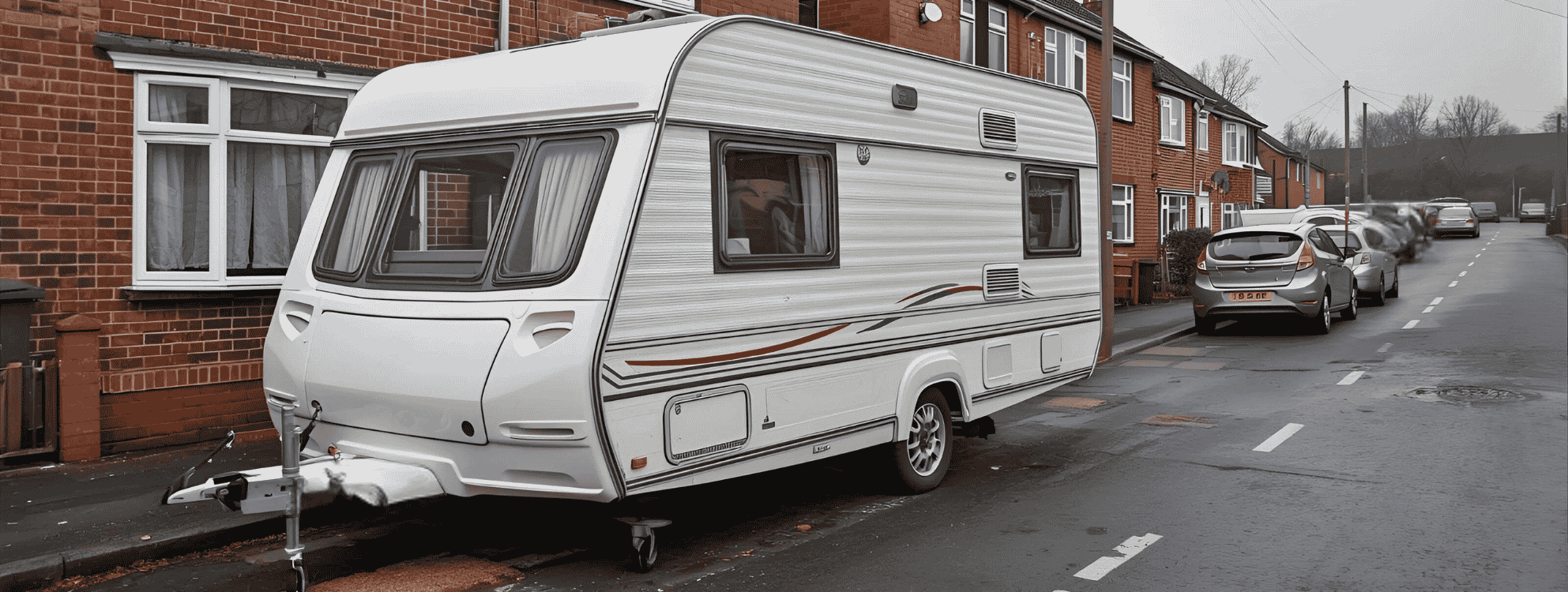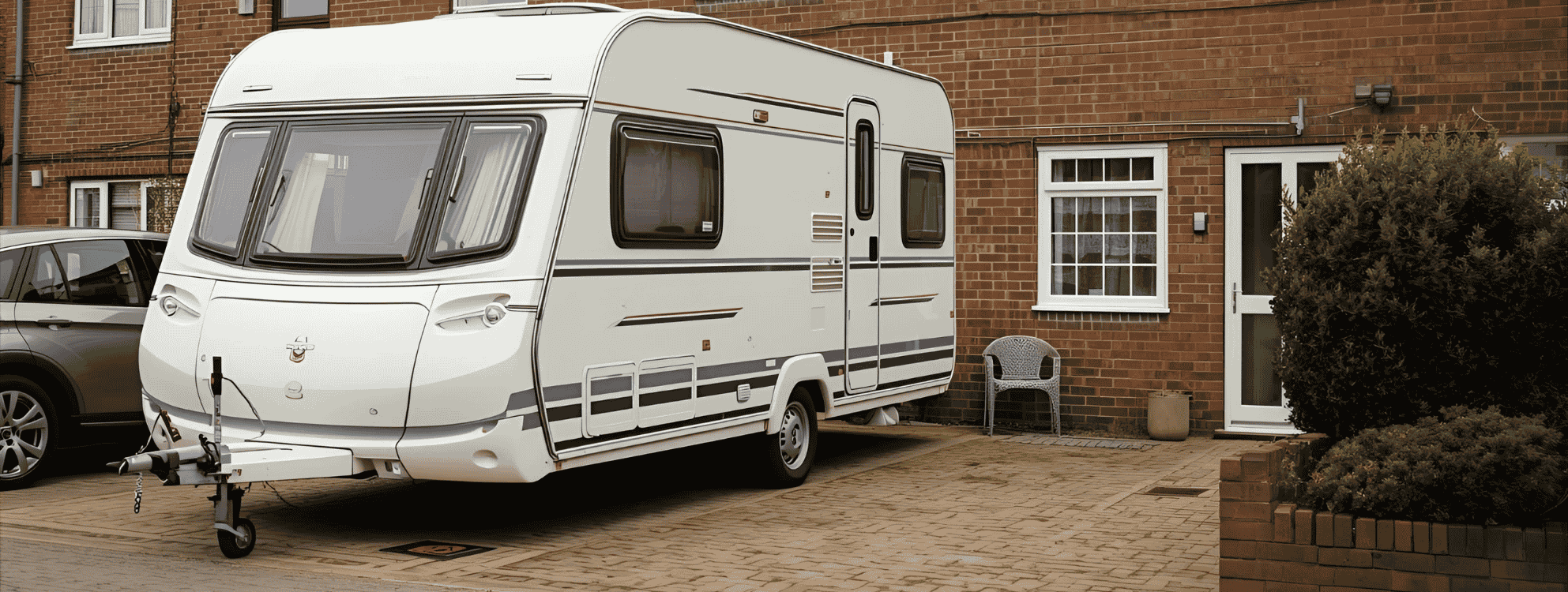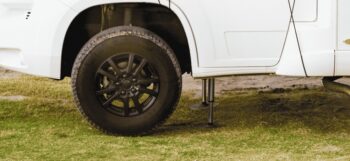Owning a touring caravan gives you the freedom to travel, but it also raises a common question. Where should you keep it when it’s not in use? Not everyone has access to private land or a driveway, so parking on the road outside your home can feel like the most straightforward option.
However, the rules around parking caravans on the road aren’t always clear and can vary depending on where you live. In this article, we'll go through legal requirements, safety tips for road parking, and alternative options if you can't park on the street.
Can You Park a Touring Caravan on the Road in the UK?
Yes, you can park a touring caravan on the road in the UK, but only under certain conditions. The Highway Code sets out requirements to make sure your caravan is parked safely and doesn’t cause problems for other road users.
To park your caravan on the road, make sure you keep to the following guidelines:
• It must stay attached to a vehicle, so it isn’t seen as abandoned.
• It must not block a driveway, pavement, or pathway.
• It must be lit at night so that drivers can see it clearly.
• You should check local council rules and signs, as some areas set time limits or may issue fines if a caravan is left on the road for too long.

You can find further details about safe and legal parking in the Highway Code’s parking guidance.
Local Council Rules for Parking Caravans on the Road
Each council in the UK has its own rules for caravans parked on the road. What’s allowed in one area may be restricted in another, so always check local guidance first. Here are a few examples:
- Brighton & Hove: You can’t store a caravan on a public road. You can only stop for short-term loading or unloading, and you must take safety precautions.
- Stevenage: You can’t keep a caravan on the road for storage. The council advises a maximum of one day for loading or unloading, and the caravan must be stable, with no one staying inside and no cables running across pavements.
- Scottish Borders: You can’t store a caravan on the road or in public car parks. If you do, the council can remove it with notice, and you may face fines under the Roads (Scotland) Act.
Caravan Road Parking Safety Requirements
If you park a touring caravan on the road, you must follow the safety rules set out in the Highway Code parking guidance, including:
- It must be lit at night: Drivers must be able to see it clearly.
- It must not block traffic or visibility: Keep it clear of junctions, bends, and driveways.
- It must be parked with the nearside to the kerb: This keeps doors and steps away from passing traffic.
- You must not use trailing power cables: Cables across the pavement or road are unsafe and not allowed.
- You can’t live in the caravan while it’s on the street: Road parking is for storage only, not for living.
- Wheel chocks or stands must be secure: This stops the caravan from moving and keeps it stable.
It’s also worth checking your touring caravan insurance policy before parking on the road. Some policies may not cover damage, theft, or accidents if the caravan is left on a public street, so if something happens, you could be financially liable.
How Long Can You Park a Touring Caravan on the Street?
There’s no single rule across the UK for how long you can leave a caravan on the road. Each council sets its own limits, so you’ll need to check what applies in your area.
Parking for loading and unloading is usually fine, but if you leave your caravan on the street overnight or for more than 24 hours, rules can change. Some councils may fine you or even arrange to have the caravan moved.
Alternatives to Parking on the Road
Parking on the road isn’t always the best option. If you can avoid it, there can be safer and more convenient places to keep your caravan, such as:
- Driveways: This is usually the easiest and most secure option if you have space at home.
- Private land: You can often keep a caravan on private property with the landowner’s permission and sometimes a fee.
- Storage facilities: Many sites offer dedicated caravan storage with added security.
- Caravan club sites: Some clubs provide members with year-round storage options.
Caravan parks: Certain parks allow you to keep your caravan there when you’re not touring.

AI generated image
Think Before You Park and Keep Your Caravan Safe on the Road
Taking a few minutes to plan where and how you park your caravan is the best way to stay safe and avoid problems. But even if you follow the rules, unexpected things can still happen, which is why suitable insurance can be important.
At Lifesure, we offer specialist touring caravan insurance designed to help protect both your caravan and its contents. Our cover can include accidental damage, theft, and unexpected repairs, to offer peace of mind whether your caravan is on the road, your driveway, or with you on your travels.
We can also offer RAC touring caravan breakdown insurance to help with roadside assistance if your caravan breaks down while you’re on the move.
Fill in our online form to get an instant quote or call us on 01480 402 460 and one of our team will be happy to help.
Disclaimer: The sole purpose of this article is to provide guidance on the issues covered. This article is not intended to give legal advice, and, accordingly, it should not be relied upon. It should not be regarded as a comprehensive statement of the law and/or market practice in this area. We make no claims as to the completeness or accuracy of the information contained herein or in the links which were live at the date of publication. You should not act upon (or should refrain from acting upon) information in this publication without first seeking specific legal and/or specialist advice. Arthur J. Gallagher Insurance Brokers Limited trading as Lifesure accepts no liability for any inaccuracy, omission or mistake in this publication, nor will we be responsible for any loss which may be suffered as a result of any person relying on the information contained herein.
FP1534-2025











